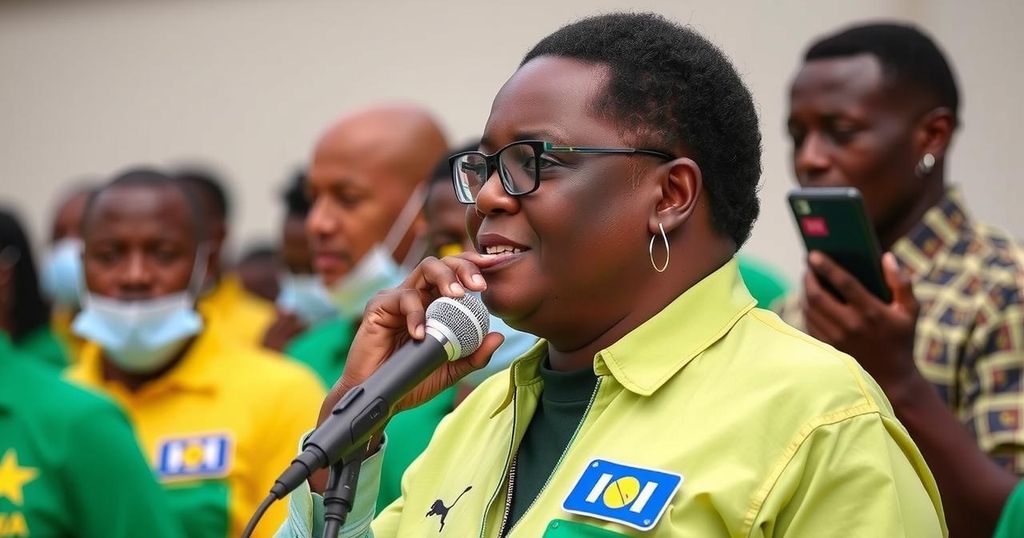World news
2024 ELECTIONS, AFRICA, ALI BONGO ONDIMBA, BILLBOARD, BR, BRICE OLIGUI NGUEMA, COMMITTEE FOR THE TRANSITION AND RESTORATION OF INSTITUTIONS, CORRUPTION, CT, ELECTIONS, GABON, INTERIOR MINISTRY, LIBREVILLE, NATIONAL ASSEMBLY, OLIGUI, POLITICS, UNION NEWSPAPER, VOTER TURNOUT
Marcus Chen
0 Comments
Gabon Votes Overwhelmingly in Favor of New Constitution Following Coup
Provisional results from Gabon’s recent referendum show overwhelming support for a new constitution, with 91.8 percent voting in favor. The constitution limits presidential terms and restricts eligibility to Gabonese citizens, impacting the legitimacy of former president Ali Bongo. Ongoing public concern regarding governance and job security underscores the complexities of the nation’s political transition.
Gabon’s military authorities have reported that the new constitution proposed by the junta has achieved substantial approval from voters, with provisional results indicating an overwhelming 91.8 percent approval rate following a national referendum. Approximately 860,000 registered voters participated in the election, where they were urged through various media outlets to exercise their democratic rights. The voting to adopt the constitution was characterized by increased state propaganda and a reported turnout of 53.54 percent, below earlier estimates.
This new constitutional framework introduces critical changes, capping presidential terms at a maximum of two seven-year terms and prohibiting any dynastic succession. Furthermore, it stipulates that only candidates possessing Gabonese parentage and spouses may run for president, effectively disqualifying the ousted ruler, Ali Bongo Ondimba, who was married to a French national. The transitional president, Brice Oligui Nguema, who currently leads the nation, referred to this referendum as a “great step forward” for Gabon’s democratic processes.
Despite the widespread support claimed by the ruling junta, opposition voices have expressed skepticism, arguing that the changes primarily serve to entrench military power and could lead to increased authoritarianism. Concerns regarding unemployment and governance continue to dominate public discourse, while over 46 percent of citizens express significant confidence in President Oligui, indicating he may have strong support moving into the upcoming presidential elections scheduled for August 2025.
Overall, the referendum’s process and its results will continue to shape Gabon’s political landscape as the country navigates its recent transition from a decade-long military-backed rule under Bongo to a potential path towards civilian governance, under the watchful eyes of both citizens and the international community.
Gabon, an oil-rich nation in Central Africa, has endured significant political upheaval, most notably the coup that ousted President Ali Bongo Ondimba in August 2023. The military junta promised reforms and returned the nation to civilian rule, culminating in the recent referendum to adopt a new constitution. This constitution is pivotal for establishing the framework within which future governance occurs and aims to correct the perceived excesses of the previous regime, which was characterized by accusations of corruption and nepotism.
In conclusion, the approved constitutional changes represent a transformative moment for Gabon’s political trajectory, emphasizing term limits and altered eligibility for presidency while reflecting the populace’s desire for an accountable governance model. The results of the referendum could pave the way for greater transparency and a potential elevation of civilian political participation. Nonetheless, skepticism regarding the junta’s long-term intentions persists, as citizens remain vigilant about the preservation of democratic principles in Gabon.
Original Source: www.tiogapublishing.com




Post Comment